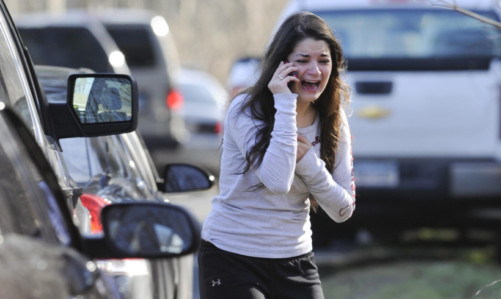THE SCHOOL shooting in Connecticut is likely to reignite the debate surrounding the purchase of firearms in the United States.
At least 26 people are feared dead after a masked gunman opened fire inside the Sandy Hook Elementary School in Newton, Connecticut, yesterday.
In July US president Barack Obama called for tougher background checks on Americans trying to buy a gun in the wake of the Batman shootings in Colorado.
He also called for restrictions to keep mentally unbalanced individuals from buying weapons. Those steps “shouldn’t be controversial, they should be common sense”, he said.
In 1990 polls showed that a substantial majority of Americans, nearly 80%, supported stricter limits on guns. Now Americans appear evenly divided between those who want tougher restrictions and those who want to stick with current laws.
Gun rights groups are a powerful lobby in the United States, where easy access to guns is a way of life in many of the more conservative and rural areas. The right to bear arms is guaranteed by the US constitution, alongside such basic rights as free speech and freedom of religion.
In a speech to the National Urban League civil rights group, Mr Obama said he wanted a national consensus in the effort to stem gun violence.
Despite the second amendment’sprotection of gun rights, Mr Obama said: “I also believe that a lot of gun owners would agree that an AK-47 belongs in the hands of soldiers, not in the hands of criminals.”
It is a highly partisan issue in the US. The powerful National Rifle Association, which has huge sway in Congress, has successfully made the issue nearly off limits among most legislators who fear the group’s opposition at re-election time.
Republican challenger Mitt Romney said that changing the nation’s laws would not prevent gun-related tragedies.
He mistakenly said many weapons used by the suspect in the Colorado shooting were obtained illegally. Authorities say the firearms used to kill 12 people and injure dozens were purchased legally.
